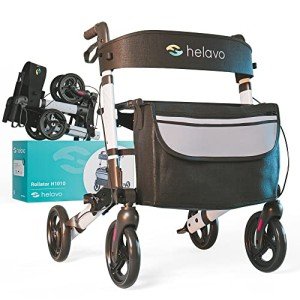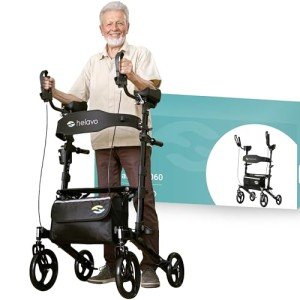Guide To Senior Walker: The Intermediate Guide In Senior Walker
페이지 정보
작성자 Verla Dixson 작성일25-09-09 21:41 조회53회 댓글0건본문
A Comprehensive Guide to Medical Walkers: Enhancing Mobility and Independence
In the realm of health care, mobility plays a vital function in rehab and overall wellness, especially for seniors and those recovering from injuries. Among the myriad of mobility help available today, medical walkers stand out as versatile tools that facilitate movement and enhance self-reliance. This post will dig into the types, benefits, factors to consider, and FAQs regarding medical walkers.
What is a Medical Walker?
A medical walker, often referred to as a walking frame, is a helpful device created to help people with mobility difficulties walk with higher stability and ease. Walkers supply a broader base of support compared to walking canes and crutches, making them ideal for those with balance issues or limited strength.

Types of Medical Walkers
| Type | Desc|x|ription | Features |
|---|---|---|
| Requirement Walker | A basic four-legged frame without wheels, used mainly for stability. | Lightweight, tough, adjustable height, suitable for indoor and outdoor usage. |
| Wheeled Walker (Rollator) | A walker with wheels on the front legs, enabling for easier motion. | Geared up with hand brakes, a seat for resting, and storage choices. |
| Hemi Walker | A walker created for people who can use one arm and need support. | Lightweight and compact, features a curved manage for much easier gripping. |
| Bariatric Walker | Developed for larger people, providing increased weight capacity and stability. | Improved toughness, broader frame, and helpful features for much heavier users. |
| Knee Walker | A special option for those with leg injuries, enabling them to rest the knee. | A platform to support the injured leg, steering capabilities, and brakes. |
Benefits of Using a Medical Walker
- Improved Stability: Walkers offer additional points of contact with the ground, resulting in a more stable walking experience.
- Increased Independence: Users can browse their environment without requiring assistance, increasing self-confidence and self-reliance.
- Improved Safety: The risk of falls is significantly reduced, as walkers provide support to those with balance issues.
- Versatile Usage: Many walkers are developed for both indoor and outdoor use, adjusting to numerous terrains.
- Assistance throughout Rehabilitation: Medical walkers are vital during healing from surgeries, injuries, or diseases.
Considerations When Choosing a Medical Walker
When picking a medical walker, different aspects should be remembered:
| Consideration | Desc|x|ription |
|---|---|
| User's Condition | Evaluate the individual's strength, coordination, and specific requirements. |
| Devices Weight | Make sure the walker is lightweight enough for easy handling but strong enough for support. |
| Adjustable Height | The Senior Walker (browse around this site) ought to be Adjustable Walker to fit the user's height for ideal comfort and functionality. |
| Hand Grip Comfort | Examine that the grips are comfortable to hold for extended periods. |
| Weight Capacity | Ensure the walker can support the user's weight, especially for bariatric walkers. |
| Storage Needs | Determine if additional features like baskets or trays are needed for carrying items. |
Regularly Asked Questions (FAQs)
How do I figure out if I need a walker?If you experience difficulty in keeping balance, feel unstable walking, or need assistance on flat surfaces or slopes, it's a good idea to speak with a healthcare specialist for an assessment. Can I use a walker outdoors?Yes, specially developed
walkers with bigger wheels(wheeled walkers or rollators)appropriate for outdoor use and can deal with various surfaces successfully. How do I maintain my walker?Regularly examine the walker for loose parts, ensure wheels are lubricated if
relevant, and clean it as needed. Speak with
the producer's standards for specific upkeep instructions. Are walkers covered by insurance?Many insurance coverage plans deal protection for walkers, but it is important to check with your provider to comprehend your particular policy
details. Can a walker help with physical therapy?Yes, using
a walker can support rehab efforts by providing stability throughout workouts advised by physiotherapists. Medical walkers are invaluable tools that not
just assist in movement and self-reliance but likewise significantly improve the quality of life for people facing mobility obstacles. With different types offered, selecting the ideal Safe Walker is
vital to satisfying private needs. The journey to gaining back mobility can be challenging, however with the right devices and support, individuals can get rid of barriers and recover their self-reliance. By understanding the types of walkers, their benefits, and necessary factors to consider, users can make informed choices-- resulting in a more secure, more confident way of moving through life. Whether it's a Reliable Rollator Walker for outdoor adventures or a simple walker for indoor navigation, the best Foldable Walker can open doors to newfound flexibility and enhancement in every day life.
댓글목록
등록된 댓글이 없습니다.

